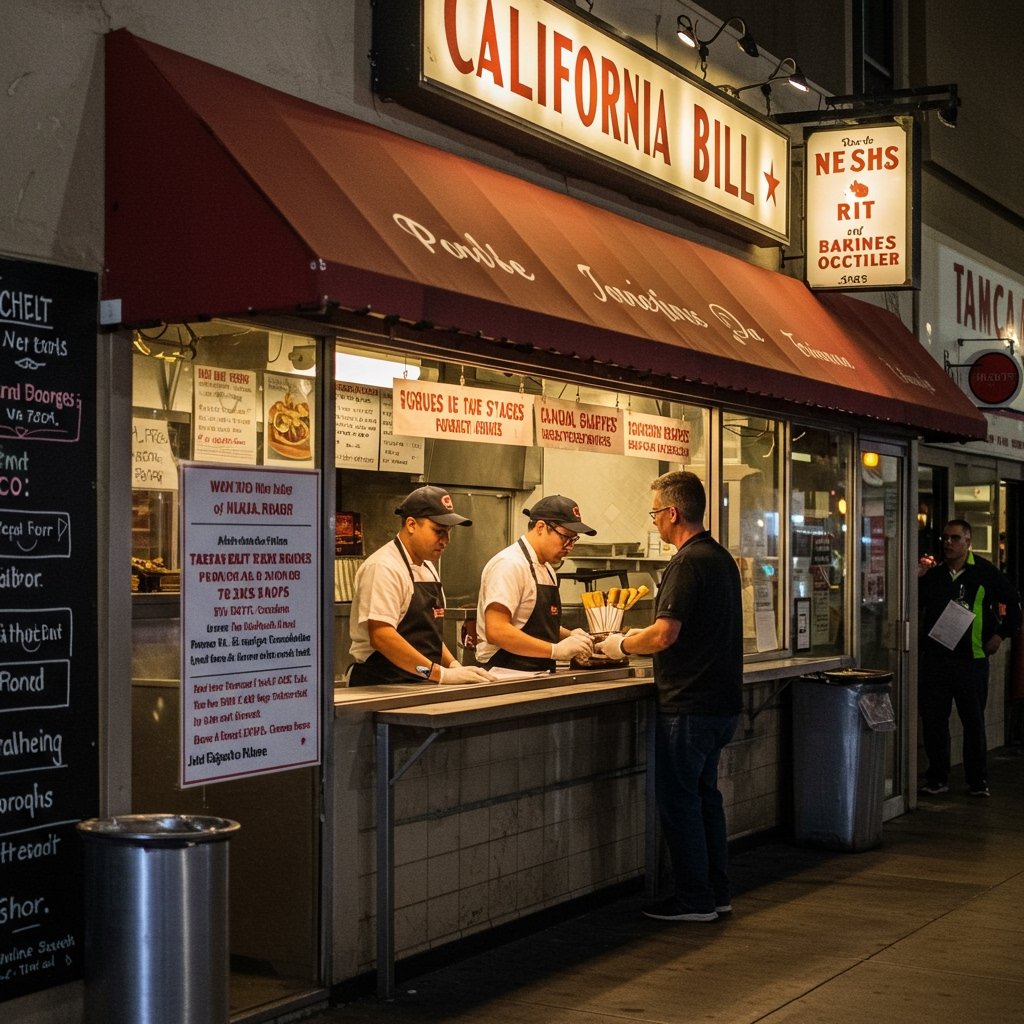California Bill AB 345 Introduced to Provide Financial Relief to Small Restaurants
Sacramento, CA – California lawmakers have introduced pivotal legislation aimed at providing targeted financial relief to independent restaurants grappling with increased operational costs, particularly in the wake of the state’s new minimum wage for fast-food workers. Assembly Bill 345, sponsored by Assemblymember Maria Rodriguez and introduced on March 5, 2025, proposes a suite of measures designed to support smaller establishments feeling the ripple effects of rising labor expenses across the broader restaurant sector.
The impetus for AB 345 stems directly from the implementation of Assembly Bill 1228, which mandated a $20 per hour minimum wage for employees of large fast-food chains (those with 60 or more establishments nationwide). While AB 1228 specifically targeted large corporate entities, its effects have significantly influenced the labor market statewide. Independent restaurants, which often operate on tighter margins than their large-chain counterparts, are facing pressure to raise wages to attract and retain staff, even if they were not directly covered by the $20 mandate. This situation has created an urgent need for support mechanisms tailored to the unique challenges faced by small business owners in the food service industry.
Assembly Bill 345 seeks to differentiate support between large, well-resourced chains and the smaller, often family-owned, businesses that constitute a vital part of California’s economy and local communities. The proposed legislation recognizes that the increased labor costs, while aimed at ensuring livable wages for workers, can place substantial financial strain on small operators, potentially threatening their viability and the jobs they provide.
Key Provisions of AB 345: Tax Credits and Grant Programs
Central to AB 345 are two primary mechanisms for delivering financial assistance. The first is a proposed annual tax credit of $5,000 specifically for restaurants that employ fewer than 50 people. This tax credit is intended to directly offset some of the increased labor costs or other operational expenses that small businesses are incurring. For many independent restaurants, a $5,000 annual saving can be a significant factor in managing cash flow and maintaining profitability in a challenging economic environment. The criteria of fewer than 50 employees is designed to ensure that the relief is strictly directed towards smaller enterprises, preventing larger corporations from benefiting from the program.
The second key component is the establishment of a pilot grant program. This program would offer grants of up to $10,000 to restaurants located in disadvantaged communities. The focus on disadvantaged communities aims to provide support where it is arguably needed most, recognizing that businesses in these areas may face additional economic hurdles and have less access to capital. The grant funding could be utilized for various purposes, such as upgrading equipment, investing in technology to improve efficiency, or covering immediate operating expenses to help absorb increased labor costs. The pilot nature of the program suggests an initial phase to assess its effectiveness and potential for broader implementation.
Context and Industry Reactions
The introduction of AB 345 follows extensive discussions within the restaurant industry and among policymakers regarding the impact of labor cost increases. The California Restaurant Association (CRA), representing a broad spectrum of food service businesses across the state, has voiced support for tailored relief measures aimed at small businesses. While the CRA supported the concept of a statewide minimum wage framework for fast food through AB 1228 as a way to bring consistency, they have also consistently highlighted the distinct challenges faced by smaller, independent operators who do not have the same scale or resources as large chains to absorb significant cost increases without impacting menu prices, staffing levels, or profitability.
Conversely, labor advocates emphasize the importance of ensuring all restaurant workers earn a livable wage, regardless of the size or type of establishment. Organizations like Restaurant Workers United underscore that the need for adequate compensation extends beyond the fast-food sector to the entire service industry. While they may support the principle of small business viability, their primary focus remains on improving wages and working conditions for employees across the board. This highlights the complex balance lawmakers are attempting to strike: supporting businesses while simultaneously advocating for improved compensation for workers.
Looking Ahead: Legislative Process and Impact
Assembly Bill 345 was formally introduced into the legislative process on March 5, 2025, and is now set to undergo committee review. Its first scheduled committee hearing is anticipated in April 2025. This hearing will provide an opportunity for the bill’s sponsor, stakeholders, and the public to present arguments for and against the proposed measures, allowing lawmakers to deliberate on the bill’s potential effectiveness and implications.
The bill’s passage is not guaranteed and will depend on navigating the complex legislative process, including gaining support from various committees and both houses of the California Legislature. If enacted, AB 345 could provide crucial financial breathing room for many small, independent restaurants across California. Proponents argue that by providing this targeted support, the state can help preserve the diversity of its culinary landscape, protect local jobs, and ensure that the economic pressures stemming from necessary wage increases do not disproportionately burden the state’s smallest businesses.
Ultimately, AB 345 represents a legislative effort to address the nuanced economic realities faced by California’s diverse restaurant industry in the evolving labor market. Its progress through the state legislature will be closely watched by business owners, workers, and consumers alike.


















